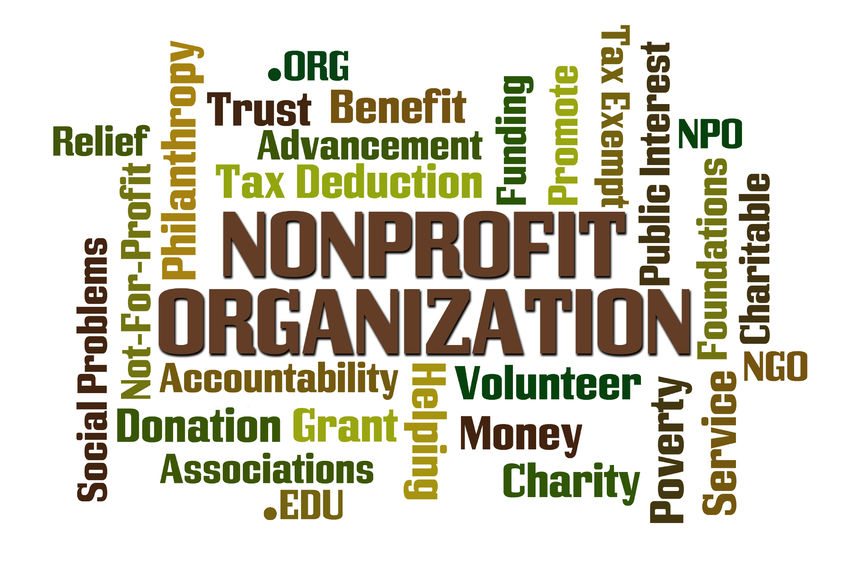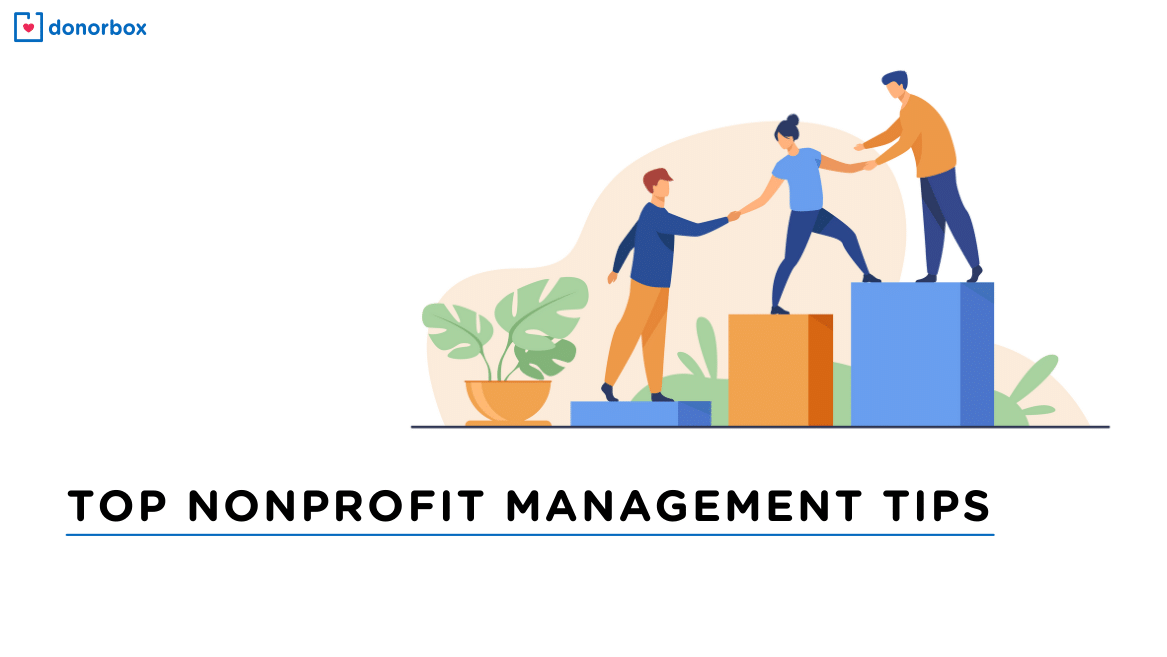Nonprofit Agency: Professional Services for Effective Fundraising and Development
Exploring the Diverse Features and Duties of a Nonprofit Company in Attending To Social Issues and Promoting Adjustment
Not-for-profit agencies act as important representatives of change within culture, dealing with a myriad of social problems via multifaceted strategies. Their responsibilities expand past plain service arrangement; they involve in campaigning for, source mobilization, and area outreach, often functioning as a bridge in between vital services and marginalized populations. By fostering collaborations and utilizing culturally relevant strategies, these organizations address the source of social challenges. Yet, the intricacies of their roles elevate crucial questions concerning performance and sustainability. What are the implications of these varied functions on long-lasting neighborhood impact?
Understanding Nonprofit Company Duties
The performance of nonprofit companies hinges on a clear understanding of their diverse functions within culture. Not-for-profit companies commonly operate as solution providers, supplying essential programs and resources to underserved populaces.
Furthermore, nonprofits play a necessary function in advocacy, increasing awareness and affecting plan decisions that impact their areas. By participating in research study and public education and learning, these companies aid shape public discourse and advertise educated decision-making - nonprofit agency. They additionally work as platforms for volunteerism, setting in motion community members to add their time and skills toward cumulative goals
Additionally, not-for-profit agencies frequently act as conveners, uniting varied stakeholders to cultivate partnership and collective influence. This collective strategy boosts their ability to address facility social issues effectively. Comprehending these diverse duties is critical for making the most of the potential of nonprofit agencies in producing sustainable social modification and boosting general neighborhood health.
Community Involvement and Outreach
Efficient area involvement and outreach are essential elements of not-for-profit agencies' techniques to construct and promote connections trust within the communities they offer. These efforts concentrate on comprehending neighborhood requirements, advertising awareness of readily available resources, and encouraging engagement in programs designed to resolve social concerns. Nonprofit organizations employ a range of approaches to engage with area participants, such as workshops, informative sessions, and collective occasions.
Outreach campaigns offer to enhance connections with diverse populaces, especially marginalized groups who might encounter obstacles to accessibility. By making use of culturally pertinent interaction strategies and leveraging neighborhood partnerships, nonprofits can boost their presence and show their commitment to neighborhood empowerment. This strategy not just grows a feeling of belonging yet also increases the possibility of sustained interaction.
Additionally, efficient community engagement surpasses plain participation; it involves actively listening to neighborhood participants' comments and incorporating their insights into program advancement. This collective process makes sure that the solutions used are responsive, relevant, and tailored to the one-of-a-kind challenges faced by the area. Eventually, fostering strong connections with interaction and outreach can lead to even more impactful treatments and a greater collective effort towards promoting positive social adjustment.
Campaigning For and Plan Impact
Advocacy acts as an important device for nonprofit firms to influence public law and drive systemic adjustment. By leveraging their experience and community insights, these companies can effectively represent marginalized populations and address pushing social concerns. Nonprofits involve in advocacy via various approaches, including public recognition campaigns, grassroots mobilization, coalition building, and straight lobbying of policymakers.
Through these initiatives, nonprofit agencies aim to form regulation and policy structures that align with their objective and the requirements of the communities they serve. They conduct research, gather information, and share compelling narratives to highlight the seriousness of particular problems, guaranteeing that decision-makers are informed and motivated to act. This process not just amplifies the voices of those impacted by social injustices yet likewise fosters an extra inclusive and fair policymaking environment.
Moreover, campaigning for initiatives frequently look for to develop long-lasting structural modifications, addressing origin creates instead than simply relieving symptoms. By focusing on plan influence, nonprofit firms add to a more comprehensive understanding of social challenges and promote services that can lead to sustainable improvements in societal wellness. Ultimately, campaigning for is fundamental to the transformative function nonprofits play in developing a simply and equitable society.
Fundraising and Resource Management
Nonprofit agencies count on robust fundraising and source management methods to support their campaigning for initiatives and sustain their missions. Efficient fundraising is crucial for guaranteeing the schedule of economic resources required to apply programs and activities that resolve pushing social issues. This procedure typically involves branching out revenue streams via grants, specific donations, corporate sponsorships, and fundraising occasions. By using a multi-faceted strategy, nonprofits can mitigate the threats linked with reliance on a single financing resource.
Resource monitoring is just as crucial, as it includes the strategic allowance of both human and economic sources to make the most of impact. Nonprofits should create budgets that straighten with their goals while making sure transparency and responsibility to stakeholders. This entails routine monitoring of expenses and readjusting approaches as needed to optimize resource use.

Partnership and Collaborations
While several organizations seek their objectives separately, cooperation and collaborations can considerably enhance the efficiency of not-for-profit agencies. By functioning together with other nonprofits, federal government entities, and private industry organizations, nonprofits can pool resources, share competence, and magnify their effect on social problems. Joint efforts typically bring about cutting-edge remedies that may not be possible separately, leveraging the staminas of each companion to deal with intricate obstacles.

Ultimately, reliable collaboration needs clear interaction, shared goals, and shared regard among partners. By embracing a participating approach, not-for-profit companies can create sustainable networks that not just address prompt social problems yet additionally add to long-term systemic modification, cultivating an extra fair culture. Through cooperation, nonprofits can flourish and optimize their possibility for purposeful effect.
Verdict
Nonprofit companies work as vital entities in dealing with social concerns and cultivating modification within neighborhoods. With varied features such as community campaigning for, interaction, and source management, these organizations efficiently activate sources and assistance for underserved populaces. Their collaborative efforts with numerous stakeholders improve the ability to affect public law and promote architectural modifications. Eventually, the complex functions of not-for-profit agencies substantially add to the quest of social justice and the enhancement of neighborhood well-being.
Understanding these complex functions is critical for optimizing the possibility of not-for-profit agencies in developing sustainable social change and improving general community wellness.
Reliable community interaction and outreach are fundamental components of nonprofit firms' approaches to build and cultivate connections count on within the neighborhoods they offer. By working with each other with other nonprofits, government entities, and exclusive market organizations, nonprofits can pool resources, share competence, and magnify their effect on social concerns.Not-for-profit firms offer as Visit Website crucial entities in promoting and resolving he has a good point social concerns modification within neighborhoods - nonprofit agency. Ultimately, the multifaceted functions of not-for-profit firms substantially add to the pursuit of social justice and the enhancement of community health